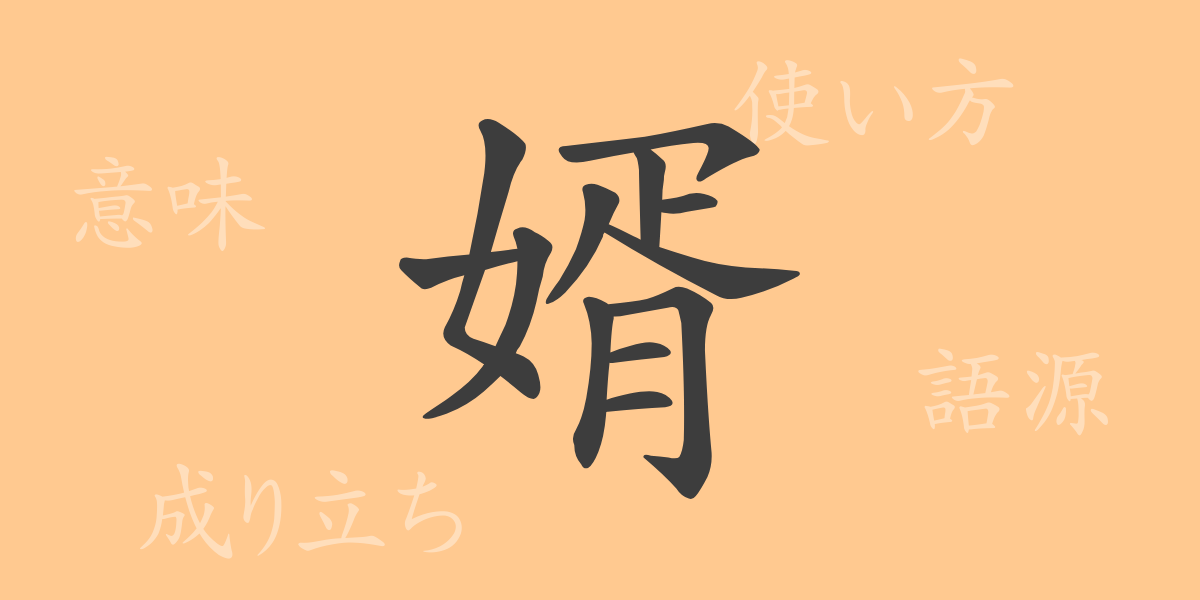The richness of Japanese script lies in its complex characters, each with their own history and significance. ‘婿’ (むこ), commonly heard at weddings, has origins and uses that are not widely known. This article delves deep into the kanji ‘婿’, exploring its etymology, modern usage, and associated idioms and proverbs, reflecting the culture surrounding marriage in which this character is rooted.
Origins of 婿
The kanji ‘婿’ traces back to ancient China, originally symbolizing women marrying out. Over time, it evolved to denote a man marrying into a spouse’s family, reflecting its use in welcoming a male into a new family as a member.
Meaning and Usage of 婿
‘婿’ generally refers to a man who joins a woman’s family through marriage, i.e., a daughter’s husband or the son-in-law from the perspective of the wife’s parents. Broadly, it also denotes any man who marries. In contemporary contexts, as the roles within marriage diversify, ‘婿’ still holds relevance, especially when referring to traditional family structures.
Readings, Stroke Count, and Radical of 婿
The kanji ‘婿’ is a familiar element in everyday Japanese, yet its details are lesser-known.
- Readings: On’yomi ‘セイ’; Kun’yomi ‘むこ’
- Stroke Count: 12 strokes
- Radical: ‘女’ (おんなへん), relating to women or femininity
Phrases, Idioms, and Proverbs Using 婿
Idioms and proverbs incorporating ‘婿’ reflect familial and matrimonial cultural nuances:
- 婿養子 (むこようし): A man who marries into a wife’s family and continues the family line.
- 婿入り (むこいり): A man entering his wife’s family home to take over family affairs.
- 婿選び (むこえらび): The act of choosing a suitable husband for one’s daughter.
- 婿を取る (むこをとる): A phrase used when a daughter gets married.
These idioms and expressions are imbued with the cultural practices and values surrounding family and marriage.
Conclusion on 婿
The kanji ‘婿’ deeply intertwines with themes of marriage and family. Its usage has evolved over time and across cultures but remains integral in discussing weddings and family relations in Japan. This exploration into the character ‘婿’ enriches our understanding of its significance and background, shedding light on its enduring relevance in Japanese society.

























